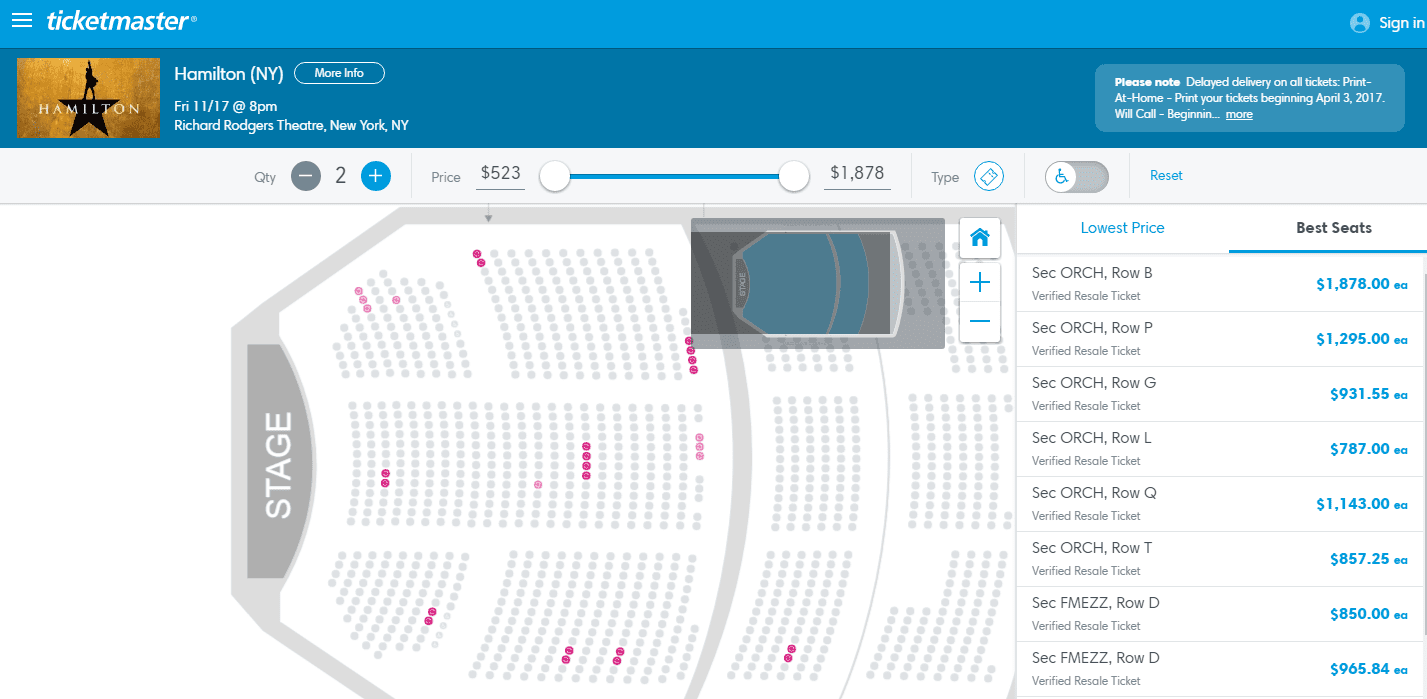by Gary Adler, Special to TicketNews
It is beyond dispute that the ticket resale market is growing at an enormous rate. So much so that Live Nation/Ticketmaster has targeted it as a strategic growth market. The secondary market has thrived because legitimate ticket resellers and marketplaces provide great customer experiences. Indeed, many ticket consumers go directly to resellers without ever looking at the box office site.
Another unassailable fact is that consumers benefit when there is vibrant competition related to the resale of tickets. One need only look at the lack of choice when tickets first go on sale to see how the dearth of competition harms consumers. Heck, the CEO of Live Nation/Ticketmaster recently admitted that the company’s many exorbitant fees are “not defendable.” In an open secondary market, there are more options offered by a variety of competitors. This keeps all participants on their toes to compete for a purchase. This competition means lower prices and restraints on fees. Simply put, you do not want to happen to in the secondary market what has happened in the primary market where there is one giant monopoly controlling ticket availability and prices. But that is exactly what is threatening to happen unless lawmakers and regulators step in to protect competition and consumers.
While many may not like professional ticket brokers who are easy targets for those trying to control the market, ticket resale is lawful. Professional ticket brokers play an important role in the broader ticket system. Because not every event is a blockbuster sellout with massive demand, professional brokers work with the primary market to purchase tickets for the express purpose of reselling them to help fill seats.
If accepting ticket brokers is difficult, at least accept the reality of what is taking place in the ticketing system and why tickets are becoming more difficult and more expensive to access. It boils down to one company choking its competition in the name of controlling how consumers purchase tickets, whether for the first time when they go on sale or if they are resold, with a few layers of added fees – fees that amount to billions in annual profits.
Ticketmaster’s new Verified Fan program launched earlier this year, a program originally positioned as an attempt to beat bots to ensure actual consumers instead of computer software were buying tickets. Like all other efforts to combat bots, Verified Fan sounded well intended and like something everyone should support. Being on the frontlines of the secondary resale ticket market, we saw the problem of bots many years ago and took an opposing position to such software as a condition of membership. We helped in the movement to ban their use through new federal law.
Despite the public relations spin, the rollout of Verified Fan has been a disaster. Fans have turned to social media to cry out about getting shut out, having orders cancelled, about watching the endless loading icon on their screens get stuck for hours only to be told tickets sold out. Company spokespeople have been working overtime to get press to report that with a million tickets and some 50 tours booked under the new program, that it’s a smash hit and working. But this is where things get interesting, and anticompetitive.
A close look reveals that no longer is Verified Fan being talked about as a bot-busting solution. The company openly brags about how it is using Verified Fan to foreclose the secondary market. This is the same secondary resale market where its own subsidiary company, Ticketmaster Resale, is flourishing. For Ticketmaster, resale now rakes in over $1 billion in revenue. So while the company by design wants to dominate and control as much of the first sale of a ticket as possible, it wants to do the same on the secondary resale market too. The company isn’t actually against resale at all – it is merely against resale that it doesn’t control, own, or profit from.
Given Ticketmaster is already the world’s largest funnel for all things related to ticketing and venues, non-Ticketmaster owned distribution channels are good for consumers. They result in more choice and because of this wider range of choice, it usually means better options for prices too. But by pitting this new Verified Fan program against two things virtually everyone hates – bots and scalping – everyone has become brainwashed in applause. It is time to snap out of it.
Verified Fan reaches beyond the battle against bots to push the lawful secondary resale market for tickets out from the open and back underground. This drives ticket resale into the old days, where the search for tickets lacked the transparency and protections consumers appreciate today, where prices are higher and, unfortunately, where there is a greater likelihood of fraud. And for what, more fees for Ticketmaster?
Whether it is large online ticket marketplaces like Vivid Seats, Ticket Network, Seat Geek, or StubHub, or the individual professional ticket resale companies – so long as the purchase of those tickets comports with federal anti-bot laws and consumer purchases are protected, their ability to operate should be protected. Ticketmaster’s Verified Fan is a wolf in sheep’s wool. Music artists are buying the pitch hook, line, and sinker. And fees and fan frustration will increase when these other methods to purchase or resell tickets are gone. This monopoly and market abuse must be stopped.
Gary Adler is the Executive Director and General Counsel of the National Association of Ticket Brokers and is a partner with Clark Hill PLC, in Washington DC. He has been involved with NATB since its inception in 1994 and serves as the association’s chief spokesperson. He can be reached at [email protected].



